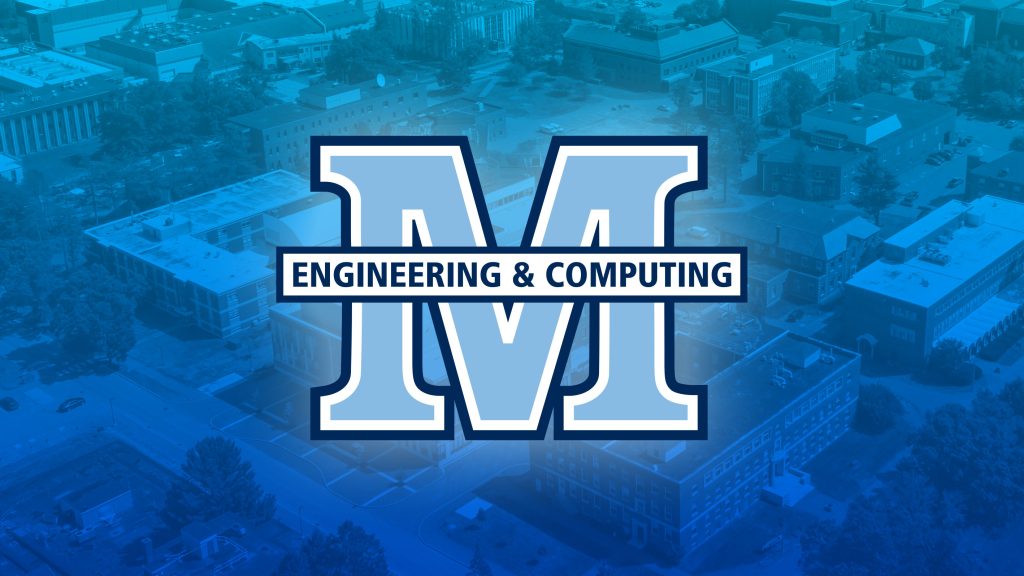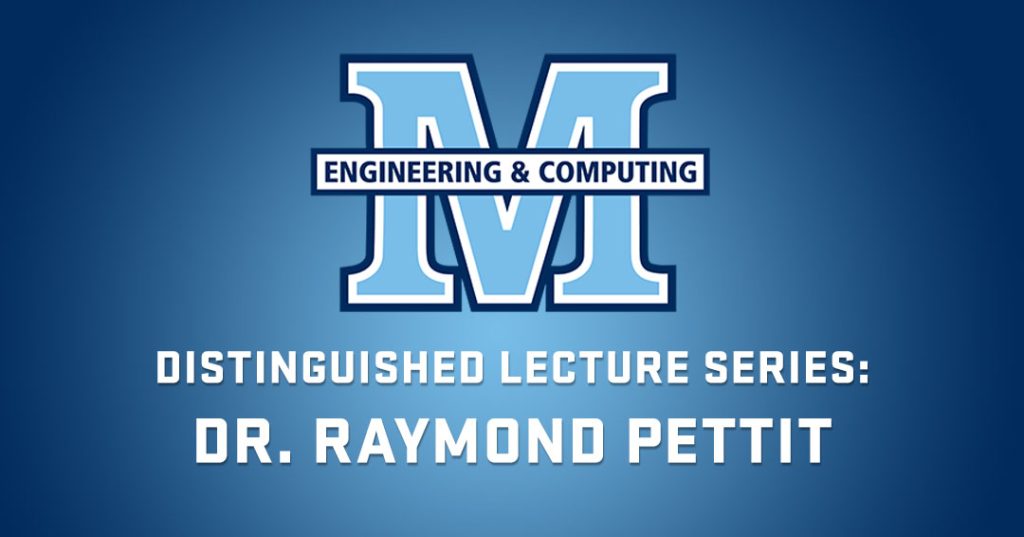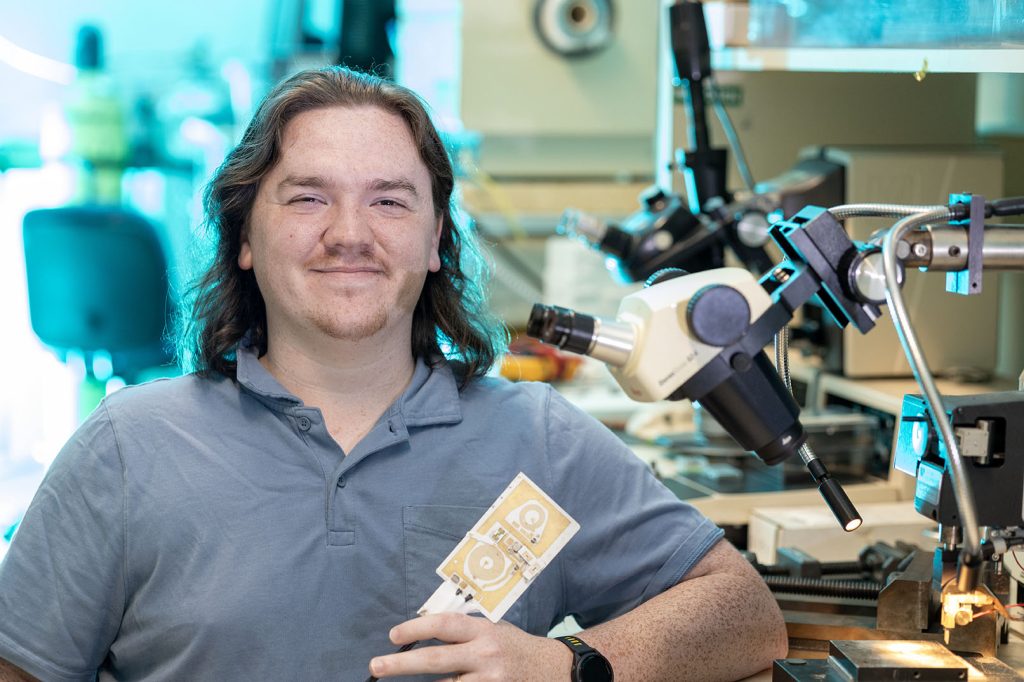Mechanical Engineering
Graduate Programs
The Department of Mechanical Engineering offers both MS (thesis & non-thesis options) and PhD degree programs aimed at preparing students for successful careers in industry, R&D, and academia by acquiring strong engineering background and research capabilities. In partnership with the Graduate School, our graduate programs are structured to achieve the established Learning Outcomes.
graduate coordinator
Andrew Goupee
Program Offerings
Prospective Graduate Student Frequently Asked Questions (FAQ)
What are the application deadlines?
We have rolling admissions. However, February 15th is the deadline for full funding consideration for the upcoming academic year.
Do you offer an application waiver?
No, we do not offer an application fee waiver. However, if you apply, are admitted, and enroll in classes at UMaine, we will reimburse your application fee.
Do you require GRE scores?
No, we do not.
What English proficiency exams are accepted for international students? What are the required scores? If I have a degree from an English-speaking institution, are English proficiency exams required for my application?
All of the acceptable English proficiency exam types, and the required scores, can be found on the University of Maine Graduate School website. This website also states that all applicants who have received a degree from an English-speaking institution do not need to provide English proficiency test scores.
What is your minimum GPA requirement for admission?
We do not have a publicly-posted minimum GPA requirement. That said, we look for competitive applications which include your essay, resume, recommendation letters, transcripts and English proficiency test scores (if applicable).
What background degrees or coursework are required for admission to your graduate programs?
Please refer to Appendix A in the Mechanical Engineering Graduate Guidelines for information on required prerequisite coursework.
Do Ph.D. applicants require an M.S. degree, or is there a direct-to-Ph.D. option?
We do offer a direct-to-Ph.D. option for highly qualified applicants with an undergraduate degree.
Do you offer a non-terminal M.S. degree for direct-to-Ph.D. students?
No, we currently do not.
Can I include a professional recommendation letter (or letters) as part of my recommendation letters or are all recommenders expected to be faculty?
Recommendations can come from both professional and academic areas, but there is a preference that at least one of these letters be from a faculty member who has knowledge of your performance in an academic setting.
Can I submit an unofficial transcript in my application?
Unofficial transcripts are sufficient for your application to be reviewed. Official transcripts sent by the institution to the University of Maine Graduate School are required if you are admitted.
If my transcript comes from a non-U.S. institution, do I need to submit a World Education Services (WES) evaluation?
No, we do not require WES evaluations. That said, if you provide one, that is perfectly fine.
If I email the University of Maine Mechanical Engineering Department Graduate Coordinator my transcript and/or other application materials, will they let me know if I would be eligible to be admitted to my desired graduate program or not?
No, the Graduate Coordinator will not provide any indication if you would be eligible to be admitted to our M.S. or Ph.D. graduate programs over email. An official review will only occur with the receipt of a completed application.
Is it required to contact a faculty member before applying for a graduate program in the UMaine Mechanical Engineering Department?
No, you do not need to contact a faculty member to apply. However, admission to our graduate programs is not a guarantee of funding.
How do I go about securing a research or teaching assistantship?
If you require funding, please reach out to faculty in our Department who have research interests aligned with yours and see if they would be willing to fund you. The individual faculty have the complete discretion to supervise and fund (through either a research or teaching assistantship) whoever they choose from among the list of admitted applicants. There is no central repository of assistantship opportunities in the Department that the Graduate Coordinator can direct you to.
Do you offer research and teaching assistantships for M.S. students?
Yes, we do offer research and teaching assistantships to M.S. (thesis-option) students.
Are applicants for the Ph.D. program more likely to secure assistantships than for the M.S. program?
The preference to choose funding either an M.S. or Ph.D. student is completely up to the individual faculty member in control of the funding and the needs of their projects.
What do research and teaching assistantships cover?
They provide a monthly stipend, cover your tuition as well as at least half of the cost of health insurance coverage if you require it. Fees associated with registering for classes are typically the responsibility of the student. The minimum monthly stipend for a nine month appointment can be found here. Stipends can be higher, and research assistantships traditionally are twelve month appointments.
Schedule of Technical Electives and Graduate-Level Courses
Courses listed as being offered during future semesters are subject to change
Spring 2025
- MEE 444 — Robot Dynamics and Control
- MEE 452 — Aircraft & Automobile Structures
- MEE 498 — Mechanics of Polymeric Fluids
- MEE 550 — Mechanics of Laminated Composite Structures
- MEE 551 — Robot Dynamics and Control
- MEE 552 — Aircraft & Automobile Structures
- MEE 557 — Introduction to Continuum Mechanics
- MEE 639 — Advanced Radiative Heat Transfer
- MEE 646 — Advanced Finite Elements in Solid Mechanics
- MEE 697 — Mechanics of Polymeric Fluids
Summer 2025
- MEE 394 — Mechanical Engineering Practice
- MEE 441 — Manufacturing and Testing of Composites
- MEE 480 — Wind Energy Engineering
- MEE 522 — Advances in Materials I
- MEE 541 — Manufacturing and Testing of Composites
- MEE 580 — Wind Energy Engineering
Fall 2025
- MEE 430 — Digital Manufacturing
- MEE 448 — Aircraft Design
- MEE 450 — Mechanics of Composite Materials
- MEE 459 — Engineering Optimization
- MEE 462 — Fluid Mechanics II
- MEE 477 — Introduction to Structural Dynamics
- MEE 486 — Refrigeration & Air Conditioning Systems
- MEE 490 — Modern Control Theory & Applications
- MEE 491 — Offshore Wind Farm Engineering
- MEE 549 — Numerical Methods in Engineering
- MEE 553 — Aircraft Design
- MEE 554 — Theory of Elasticity
- MEE 559 — Engineering Optimization
- MEE 564 — Fluid-Structure Interaction
- MEE 577 — Introduction to Structural Dynamics
- MEE 590 — Modern Control Theory & Applications
- MEE 591 — Offshore Wind Farm Engineering
MCEC NEWS





